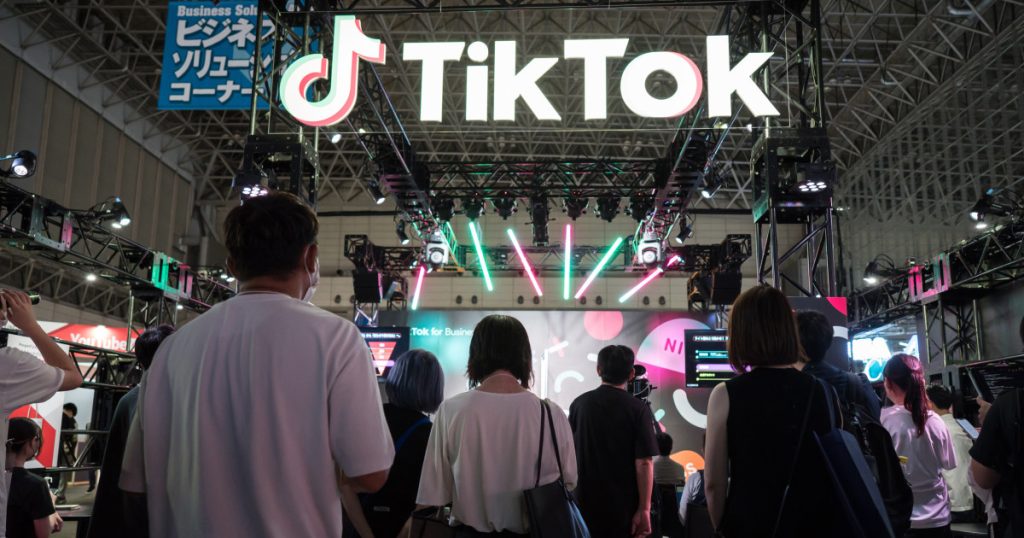The $95 billion national security package heading to President Joe Biden’s desk includes a provision that could potentially ban TikTok. However, this ban will not take effect before the 2024 election, allowing the popular app with 170 million American users to remain influential throughout the campaign and provide a platform for candidates to reach younger voters. Recent changes in the legislation give ByteDance, TikTok’s parent company, nine months to sell the app or face a nationwide prohibition in the United States. There is also a provision for the president to grant a one-time extension of 90 days if certain conditions are met, pushing the potential ban to April 2025.
Democrats played a role in extending the deadline for TikTok’s divestment, with the goal of increasing the chances that ByteDance would sell the app before facing a ban. Some lawmakers believe that the Chinese Communist Party-controlled company would choose to sell TikTok rather than risk a U.S. ban. On the other hand, former President Donald Trump, who previously tried to ban the app, is now blaming Biden for the potential TikTok ban, making it a political issue. However, opinions about TikTok’s ban may not be a central voting issue in the 2024 election, according to some Democrats.
Despite concerns about national security and data privacy associated with TikTok, there are calls to consider the impact of a potential ban on users such as creators, organizers, and activists who rely on the app for their work. Some lawmakers believe that a ban on TikTok could be a decision that doesn’t take into account the broader consequences. The uncertainty around the future of TikTok has made the political implications murky, especially for Democrats who use the platform to reach voters and engage with their audience.
Amidst the debate about TikTok’s ban, candidates and campaigns continue to use the app as a tool to connect with voters. The potential impact of a looming TikTok ban on campaign strategies and messaging remains uncertain, especially in battleground Senate states where Democratic candidates are active on the platform. Despite differing opinions within the Democratic party about TikTok’s ban, the debate highlights the complexity of balancing national security concerns with free speech rights and the potential impact on various user groups.
Progressive lawmakers such as Rep. Ro Khanna oppose a TikTok ban on the grounds of free speech rights and believe that the rushed nature of the legislation shows a disconnect between the Beltway establishment and many Americans. As the debate around TikTok’s ban continues, candidates are advised to consider both their convictions and the potential repercussions of their stance on this issue. The evolving political landscape regarding TikTok underscores the challenges of navigating national security concerns, technology regulation, and free speech rights in the digital age.


